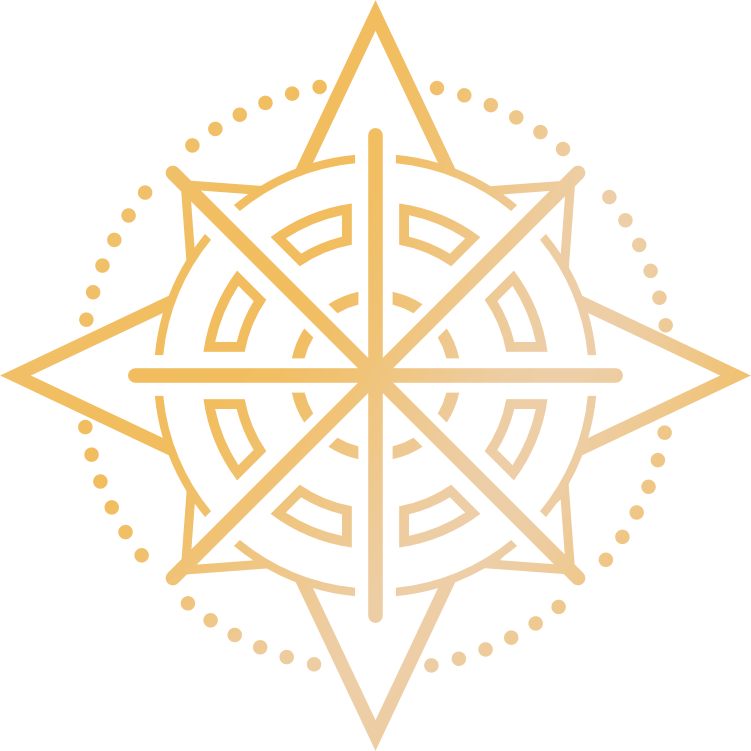Ethics of Esoteric Consulting
Let’s be honest: the world of esoteric consulting can feel like the Wild West. Tarot readers on TikTok, Instagram astrologers, crystal shops with “energy upgrades”—it’s exciting, but also confusing. Ethics sometimes take a back seat to aesthetics, hype, or even sales. But as someone who works with modern professionals (and has seen my fair share of “mystical mishaps”), I believe in a grounded code of ethics. No guru vibes, just real talk.
Why Ethics Matter in Esoteric Consulting
Whether you’re offering tarot readings, astrology sessions, or energy-clearing rituals, you’re in a position of trust. Clients may come to you in vulnerable moments: a career crossroads, grief, burnout, or relationships on the rocks. Your words—and your products—can shape their next steps.
“With great insight comes great responsibility.”
Unlike traditional therapy, there’s no official licensing for tarot readers or crystal consultants. Which means: it’s up to us to define and uphold ethical standards.
Case Study: The “Too Honest” Tarot Reading
Last year, a client asked for insight into a complicated breakup. The cards were blunt. I could have delivered the message straight up (“He’s not coming back, move on!”), but I paused. Instead, I focused on clarity and empowerment, not fatalism or fear. This wasn’t about sugar-coating—it was about supporting someone’s agency, not flattening their hope.
My Personal Code of Ethics: Step-by-Step
1. Informed Consent—Every Session
- Explain what I do and what I don’t do. No medical, legal, or financial advice—ever. If you’re not sure, refer to professional ethical guidelines.
- Set expectations. I tell clients exactly how a session works, what they can expect, and how their data is handled.
- Confidentiality is non-negotiable. What happens in a reading stays in the reading.
2. Empower—Don’t Override
- Never claim to “know their fate.” I remind clients: the cards, stars, or stones show possibilities—not certainties.
- Encourage personal agency. Suggest practical steps, not “predictions set in stone.”
3. Boundaries—For Me and My Clients
- Keep sessions focused. No prying into third parties (ex: “What’s my boss really thinking?”).
- Respect my own limits. If I feel unqualified, I refer out—sometimes the best support is recommending a therapist or coach.
4. Product Recommendations—Transparency Is Key
- Disclose affiliate links and sponsorships. Honesty builds trust. See the note at the end of this post.
- Review products I actually use. No “miracle cures,” no fake testimonials.
Quick-Reference Checklist: My Ethics in Practice
| Step | What It Looks Like | Why It Matters |
|---|---|---|
| 1. Informed consent | Intro email + client agreement | Clarity, no surprises |
| 2. Empowerment | Focus on action steps, not fatalism | Client stays in control |
| 3. Boundaries | No third-party readings, clear time limits | Respects privacy & professionalism |
| 4. Product transparency | Disclose affiliate links, honest reviews | Builds trust |
Tools & Products: My Go-To Ethical Resources
-
Tarot for Yourself by Mary K. Greer – a practical, client-centered approach to readings.
Pros: Empowers clients, step-by-step exercises.
Cons: Not for total beginners.
Best for: Readers who want to add depth without drama. -
Ethics in Energy Medicine – science-backed boundaries for healers.
Pros: Real-life scenarios, clear legal advice.
Cons: Geared toward practitioners.
Best for: Anyone offering Reiki, crystal healing, or similar services. -
Crystal Vaults: Crystal Ethics Guide – Reliable info about sourcing and responsible recommendations.
Pros: Straightforward, regularly updated.
Cons: Basic, but a solid starting point.
Best for: New crystal enthusiasts and practitioners.
15-Minute Ritual for Ethical Clarity
- Set your space: Light a candle or set a timer (yes, your phone counts!).
- Jot down your beliefs: What feels non-negotiable? (Ex: “I don’t read for third parties,” “I always disclose paid links.”)
- Review your website or intake form: Is your code of ethics clear?
- Pick one sticky area: Maybe it’s product recommendations, or setting a boundary with a client. Write down what a healthy response looks like.
- Commit to one action this week: Update your site, practice a boundary phrase, or add a disclaimer to your next post.
15 minutes, one cup of coffee, a little clarity. That’s it.
More Resources for Ethical Practice
- Tarot Association Code of Ethics
- Association of Professional Astrologers International – Ethics
- Psychology Today: Ethics Basics
Final Thoughts
In the end, ethics aren’t about being perfect—they’re about being honest, clear, and caring. Whether you’re consulting with a client or recommending a tarot deck, your integrity is your most powerful tool. And if you ever feel stuck? Take a breath, check in with your own values (and maybe this checklist), and remember: you can always choose the ethical option.
Some links in this post may be affiliate. You pay the same price, and this blog may earn a small commission—it helps keep the site running and ad-free. Thank you for your trust!
Thank you for reading and being willing to think deeply about ethics in esoteric consulting. The more transparency, honesty, and self-reflection we bring to our work, the safer and more empowering this space becomes—for practitioners and clients alike.
“Ethics isn’t a finish line—it’s an ongoing conversation. Every reading, every ritual, every product recommendation is a new opportunity to show integrity.”
If you’re just starting out, don’t stress about being perfect. Start with small, clear commitments (like a one-sentence disclaimer or a simple intake form). If you’re an experienced practitioner, consider mentoring others or sharing your ethical code openly—it sets a positive example and raises the bar for the whole community.
Quick Self-Check: Are You Practicing Ethically?
- Do you clearly state your boundaries? (Ex: “No health predictions. No third-party readings.”)
- Are your sessions truly confidential?
- Do you avoid “miracle” claims about products or crystals?
- Are affiliate links and sponsorships disclosed in every post or recommendation?
- Do you empower clients to make their own decisions?
If you answered “no” to any of these, that’s your next growth area! Pick one to work on this month—small steps add up fast.
Final Encouragement
Remember, being ethical doesn’t mean being boring or “less magical.” It means your work stands up to real-life scrutiny, and that clients can trust you—even (especially) when life gets messy. That’s spiritual wellness for the real world.
Want more tools, templates, or ethical case studies? Let me know in the comments or reach out via my contact page. This conversation is always open—and we’re all learning, together.







